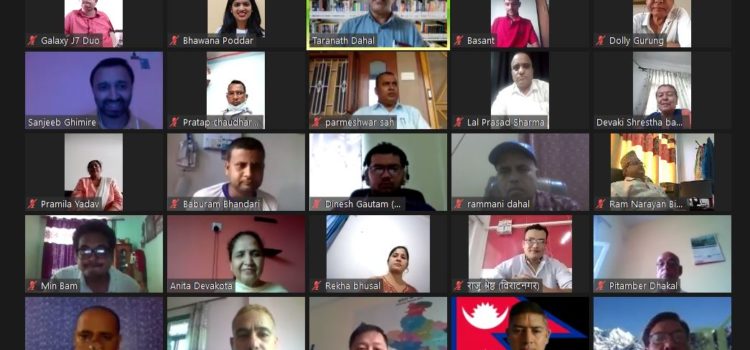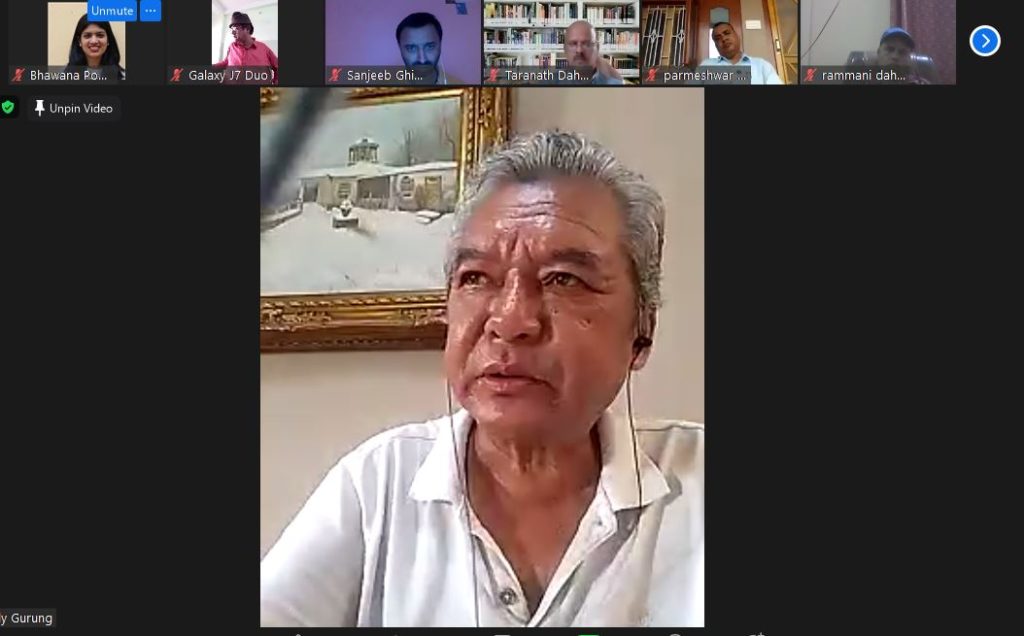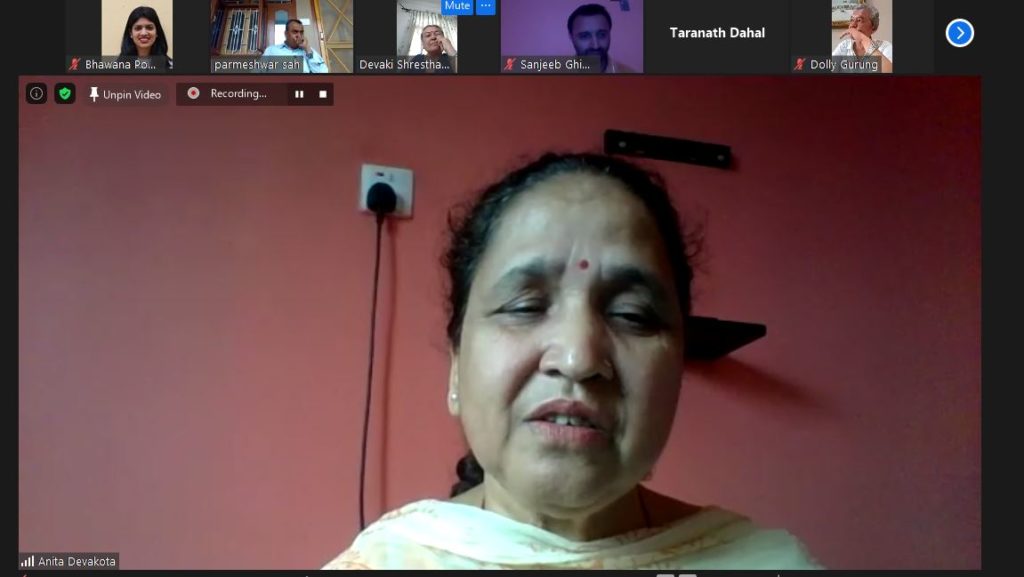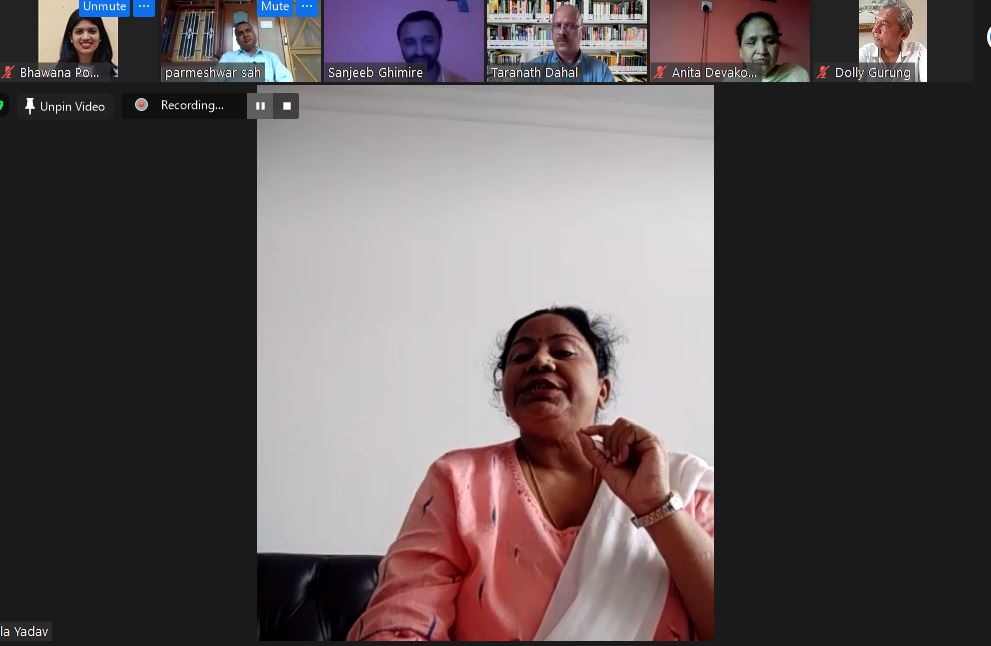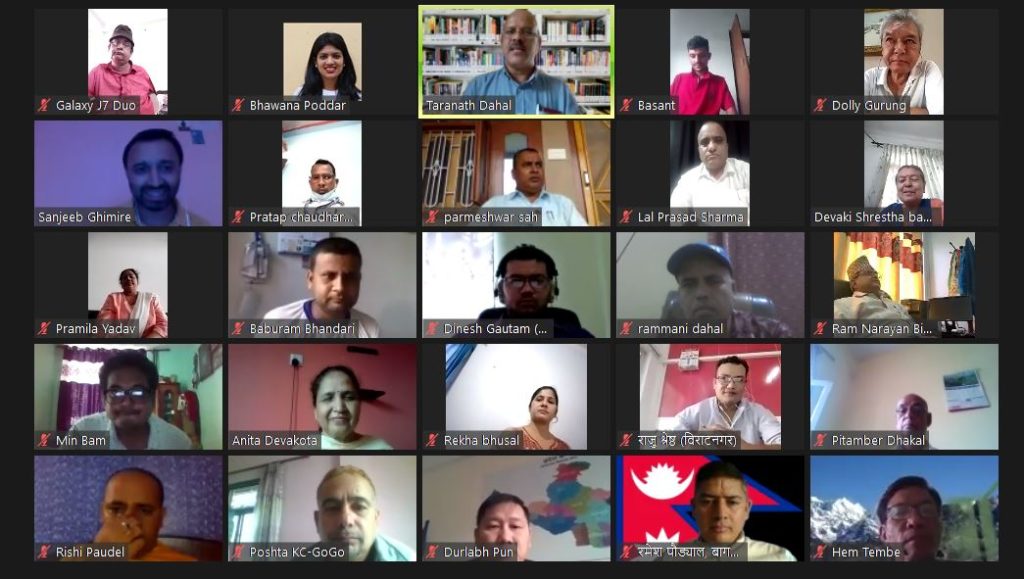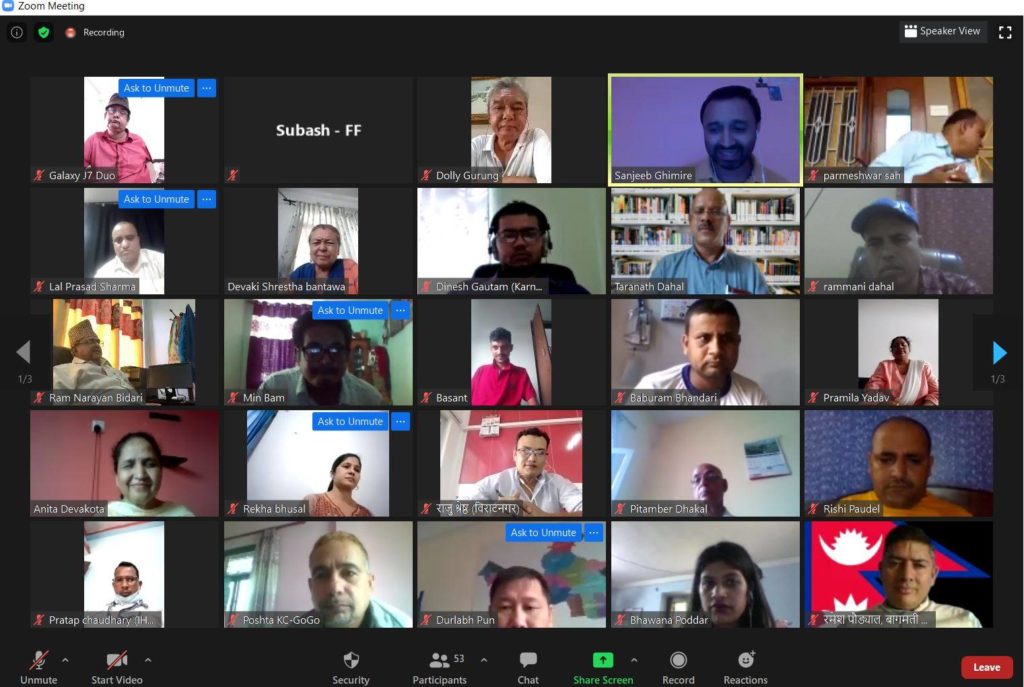Freedom Forum organized a virtual dialogue on ‘Citizen Engagement in Law-Making Process’ on the occasion of the Constitution Day on 18 September 2020. On the occasion, former Chief Secretary at Parliament Secretariat Surya Kiran Gurung stressed that citizens’ groups, stakeholders and experts must be engaged from the process of identifying the scope of new law or reforms.
Gurung argued if the line ministries were brought under the parliamentary purview in the law-making and amending process right from the beginning, it would help bring change in a meaningful way. The people’s representatives could also receive people’s inputs and aspirations collected throughout the country.
He argued especially in terms of delegation of statutorily federated authorities would enfeeble the very foundation of federal democratic republic set by the constitution.
Similarly, Member of the National Assembly Ram Narayan Bidari viewed laws and policies should be formulated in line with the constitutional provision and taking into account the views/inputs from the stakeholders and citizens. “The provision of political parties’ whip to their lawmakers during the deliberations on particular bill should be amended so that it would broaden the scope of citizen engagement in the law-making process.”
He wondered why three-month-long discussion was required on the fiscal bills in the parliament if the proposed laws were not subject to change with inputs and deliberations from the lawmakers.
Also speaking on the occasion, another National Assembly member Anita Devkota said it was important to secure people’s ownership of amending and implementing the constitution. According to her, the amendment time of 72 hours provided to lawmakers to study and prepare amendment notes after the bill(s) are tabled was inadequate and it needs revision.
Another member of the National Assembly, Pramila Kumari Yadav suggested aware citizens and their organizations to exert pressure on parliament so that they would formulate laws as per the constitution.
Moreover, Province-2 Assembly Member Parameswor Saha expressed worry over not making transparent the process of engaging citizens in law-making process. The law-making is influenced badly by partisan division, he added.
Bagmati Province Assembly Member Ramesh Poudyal expressed concern over hasty and fast track approach of tabling bill and passing it, which, he argued had undermined the role of elected representatives.
On the occasion, Chairperson of Civic Concern Association, Pitambar Dhakal, also echoed over non-existent engagement of the general public beyond Kathmandu in the federal law-making process.
Karnali Province Assembly Member Sita Nepali viewed shrinking role of lawmakers at province and local levels was matter of huge concern. As lawmakers themselves have little role, citizens’ voices and aspirations are almost unheard on the law-making process, she stressed.
Journalist Ganesh Lamsal said the lawmakers need to garner public views even out from the parliament and incorporate their concern while drafting bills. It is also one of the effective methods to make law-making inclusive, he added.
Undersecretary at Province-1 Rishi Poudel asserted that adoption of rule of law would mend many flaws in the law-making process. Team Leader of Parliamentary Support Programme/UNDP, Dila Dutta Pant also stressed the need to enhance orientation to the parliament secretariat employees and also set up a legislative consultation branch to coordinate and reflect the citizens’ inputs in law-making.
Provincec-5 Assembly Secretary Durlav Kumar Purja Magar said the secretariat could ensure change by providing expert service. Collection of public inputs and feedback in regard to law formulation has huge significance.
Team Leader of Data for Development Project of The Asia Foundation Sajana Maharjan underlined the deliberative engagement of the citizens in the process of law-making while team Leader of SUSASAN Project Hem Tembe demanded parliamentarians’ commitment on how they would convince the general public on their participation in law making.
Freedom Forum Executive Chief Tara Nath Dahal suggested that lawmakers could visit their constituencies and garner input from the people and CSO representatives before beginning any legal process. Government’s proactive disclosure on the need and scope of bringing new laws or amendments was another systematic way of making law convincing. As many as 65 participants including lawmakers, experts, CSO representatives, and media persons attended the event.

